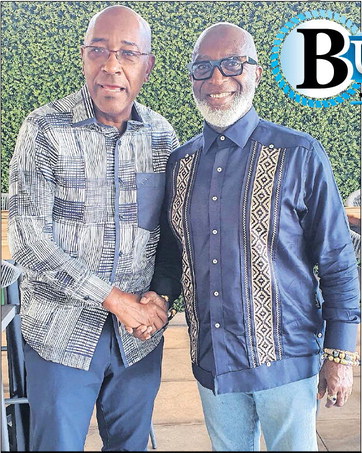With Africa poised to be the next global economic powerhouse, local businessmen are being encouraged to explore business opportunities in Ghana.
The call came from the chief executive of Ghana Investment Promotion Centre CEO, Reginald Yofi Grant, and Inter-American Development Bank’s executive director for Caribbean Robert Le Hunte. Grant said in Ghana alone, there was a potential customer pool of 32 million and more than 300 million in West Africa. Le Hunte pointed out that the manufacturing sector took to benefit from lower energy prices in Ghana compared to our regional counterparts.
“The encouragement for Trinidad business people is to see the potential of the market and to go there and explore the market. If you are a manufacturer, you want to be part of a market that is the largest consumer market. What Ghana has as you have been hearing is a lot of raw materials: a lot of products, bananas, pineapple, mangoes, cashews, shea butter, avocado, palm oil, just to name a few.
What Trinidad has; we have expertise in packaging,” said Le Hunte. “What Ghana is looking for is partnership, synergies with places that have familiarities with the diaspora. That’s what they want, they want to leverage our manufacturing skills. We want to leverage their market. To me that speaks to a marriage made in heaven,” he added.
Grant said there is greater commonality between the two countries than differences and that makes for greater accommodation for business.
 “We are more alike in many more ways than we are different. I believe that you all do have a natural affinity to the African continent, both culturally, both behaviorally, look at the food, we eat almost the same things. Look at the music. The beats or common beats are the same, you know. So culturally, we are very much in sync and in tune that you tell us that when there are opportunities, it is just as good for you to have those same opportunities as anybody else and if not more.”
“We are more alike in many more ways than we are different. I believe that you all do have a natural affinity to the African continent, both culturally, both behaviorally, look at the food, we eat almost the same things. Look at the music. The beats or common beats are the same, you know. So culturally, we are very much in sync and in tune that you tell us that when there are opportunities, it is just as good for you to have those same opportunities as anybody else and if not more.”
Trade missions ahead
The men said to show the seriousness of the opportunity, they met with representatives from the Ministry of Trade, including Minister Paula Gopee-Scoon, Chamber of Commerce, the T&T Manufacturing Association (TTMA) and InvestTT last Thursday. Coming out of that will be a bilateral investment treaty which, hopefully, will be followed by two missions to Ghana, one, a cultural mission in December and the other, a trade mission in March. “We are working on a bilateral investment treaty to define the parameters or the protocols that will guide the way we do business as well as a tax avoidance treaty. Those will lay the ground rules on which we can interact or do business. But beyond that, is a real opportunity, real interest that I’ve seen today from some manufacturers, traders and distributors,” Grant said.
The reignited talk of trade deals between the two countries came during the Emancipation Day visit of Ashanti King Otumfuo Osei Tutu II, who returned to Ghana along with his delegation yesterday. In 2007, former prime minister Patrick Manning, at the eighth Ordinary Session of the African Union Conference in Addis Ababa, Ethiopia, spoke of bridging a gap between the two countries with T&T assisting in developing its natural gas economy. This ‘Africa Initiative’—as it came to be called—prompted a series of exchanges, study tours and delegation visits over the next decade, as those West African nations sought to learn from the T&T experience.
This dream materialized in 2022, six years after Manning’s death. State-owned National Gas Company (NGC) produced a critical piece of equipment, the Takoradi Distribution Station (TDS) in Ghana. It was the first time such a project was conceived and executed virtually, and it marked NGC’s first steps into selling technical services. The project started in December 2020, during the pandemic, when the country’s borders were closed.
Asked about the 15-year-delay and what assurances can be given to businessmen that there will not be a repeat, both men said the delay was a matter of politics. Le Hunte, who was part of the team to establish Republic Bank in Ghana, said the energy deal between West African states and T&T was government to government dealings while this venture relies on the private sector taking charge.
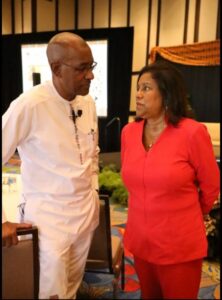 Le Hunte said Republic Bank’s venture into the Ghanaian market was the largest investment into the country of any entity from the diaspora. He said after the bank visited the country in 2010 and did its research, within two years the bank was up and running. That two-year period, he said, was testament to the ease at which business can be done in the country, all that is needed is for entrepreneurial exploration.
Le Hunte said Republic Bank’s venture into the Ghanaian market was the largest investment into the country of any entity from the diaspora. He said after the bank visited the country in 2010 and did its research, within two years the bank was up and running. That two-year period, he said, was testament to the ease at which business can be done in the country, all that is needed is for entrepreneurial exploration.
Transport limitation
In 2010, Prime Minister Dr Keith Rowley visited Ghana on an invitation by Ghanaian President Nana Addo Dankwa Afufo-Addo for the country’s 63rd independence anniversary. During that meeting he sought to strengthen ties for trade in agriculture and energy. One of the agricultural trade agreements involved growing Ghanaian white yam in T&T. Le Hunte said the project began and with the pandemic, there were some hiccups. He said the sample roots grew well in the tested areas and officials are now looking to expand commercial production. The main hiccup both men agreed was transportation.
After his 2020 visit, Rowley said he hoped Ghana Airways would return and provide direct flights to Port-of-Spain and the Caribbean from Ghana. Grant said he spent close to 15 hours getting to T&T, while a direct flight, which is possible, would have taken six hours. He said a direct flight is key to the connection and the time has come for the matter to go beyond discussions to reality. “On the first day (of the visit), we had a business seminar where we had Caribbean Airlines represented, and we spoke about the possibilities and the need to move further with that beyond the talk. Africa presents a very interesting opportunity for the Caribbean,” he said.
Le Hunte interjected, calling for the private sector to step up and facilitate direct flights rather than rely on governments. He said Ghana is the second largest producer of cocoa and is rich in minerals and agriculture, so transportation between the region and Ghana is essential. “Right now, there are limitations because of transportation. And admittedly that is so but that is what makes the market even more attractive for people because of the potential. What I am encouraging Trinidadian businessmen, is actually because of the huge potential. It might be a little bit of an inconvenience, but it is worth the inconvenience because of the size of the market,” he said. He wondered why the focus remained on the current market when there is a whole new frontier in Africa.
He said for direct transport between the two countries, there needs to be traffic and called on the private sector to lead that and not the government. He added that it will happen as businesses happen. As in physics, Le Hunte said, momentum builds when there is movement, and it was time for manufacturers to look outside the region. The market is there to take advantage of, he said, adding he will make himself available to help anyone who wants to enter the Ghanaian economy.
Grant said it is time to reattach the umbilical cord that was cut some 400 years ago. He identified the diaspora and the European Union as the sixth region of Africa. “Let us take advantage of this opportunity. History has denied us a very significant part in our mutual progress. And I think it’s about time that we mitigate against that happening again. The opportunities are there, the linkages are there. We come here with a lot of optimism, and we believe that we will bridge that gap and it will be to our mutual benefit.”
By Jensen La Vende
Senior Reporter
jensen.lavende@guardian.co.tt
 The event availed an opportunity to orient the Japanese Business Community on the investment trends and opportunities within multiple sectors in Ghana, to guide their expansion and investment decisions.
The event availed an opportunity to orient the Japanese Business Community on the investment trends and opportunities within multiple sectors in Ghana, to guide their expansion and investment decisions. “Beyond all that is happening in the world, there is a tacit agreement that Africa has a significant role to play in reviving the global economy, considering its vast unexplored resources and market. We believe that Ghana is an entry point to this real potential” Mr. Grant mentioned.
“Beyond all that is happening in the world, there is a tacit agreement that Africa has a significant role to play in reviving the global economy, considering its vast unexplored resources and market. We believe that Ghana is an entry point to this real potential” Mr. Grant mentioned.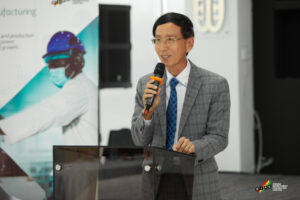 “We recognize GIPC as an important partner in assisting our companies overcome the challenges that they may face in doing business in Ghana” he noted.
“We recognize GIPC as an important partner in assisting our companies overcome the challenges that they may face in doing business in Ghana” he noted.
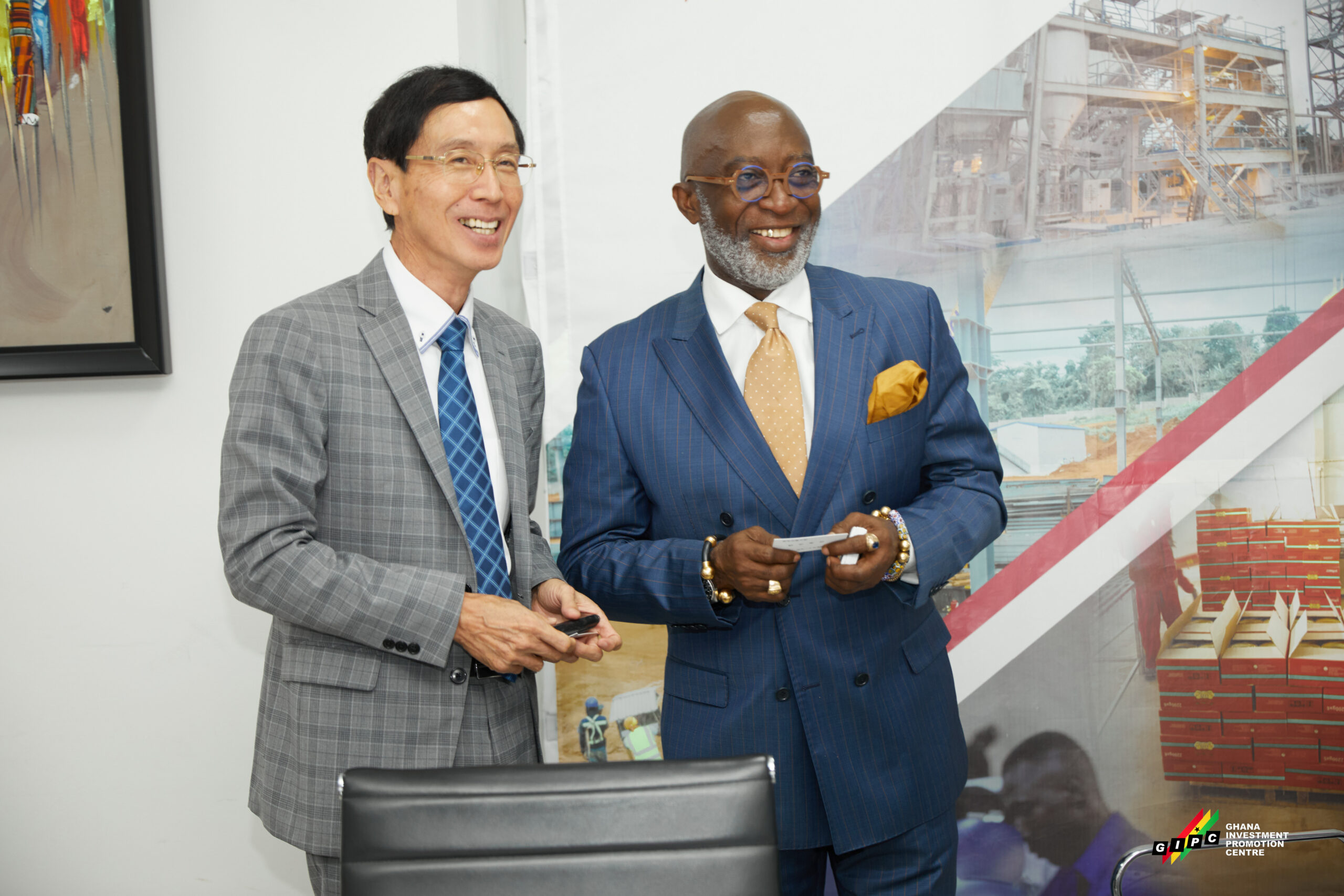
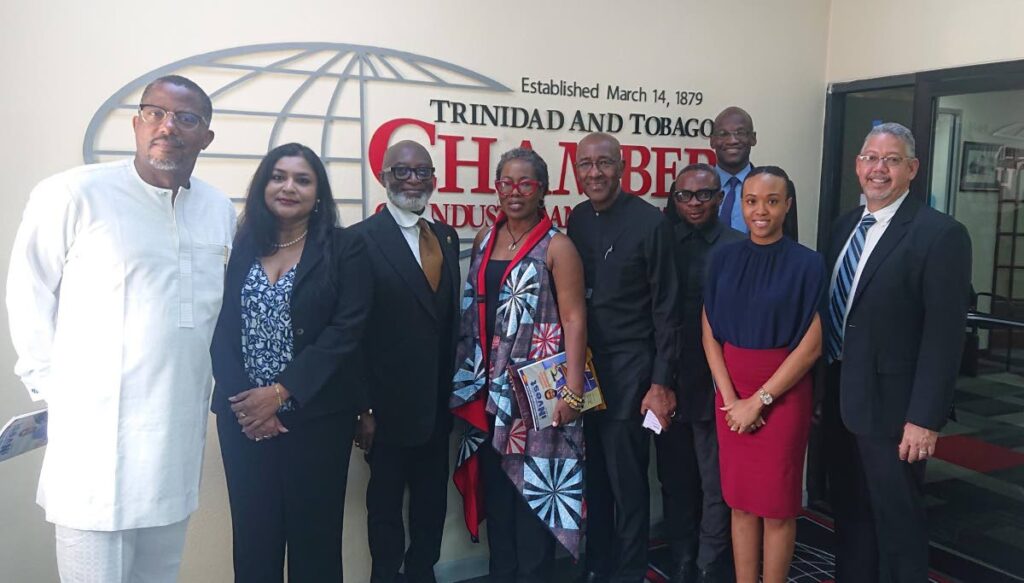
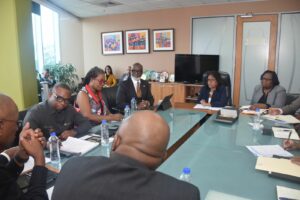 For us in Ghana, partnerships for linkages and trade are key because we do have significant raw material for which we want to add value and then export, and I believe that T&T is really the industrial powerhouse of the Caribbean so there is a lot to learn. But there is also a lot to trade not only in goods but services, particularly in the oil and gas sector where Trinidad and Tobago seem to have built some capacity and experience which they can leverage in Ghana,’ he said.
For us in Ghana, partnerships for linkages and trade are key because we do have significant raw material for which we want to add value and then export, and I believe that T&T is really the industrial powerhouse of the Caribbean so there is a lot to learn. But there is also a lot to trade not only in goods but services, particularly in the oil and gas sector where Trinidad and Tobago seem to have built some capacity and experience which they can leverage in Ghana,’ he said.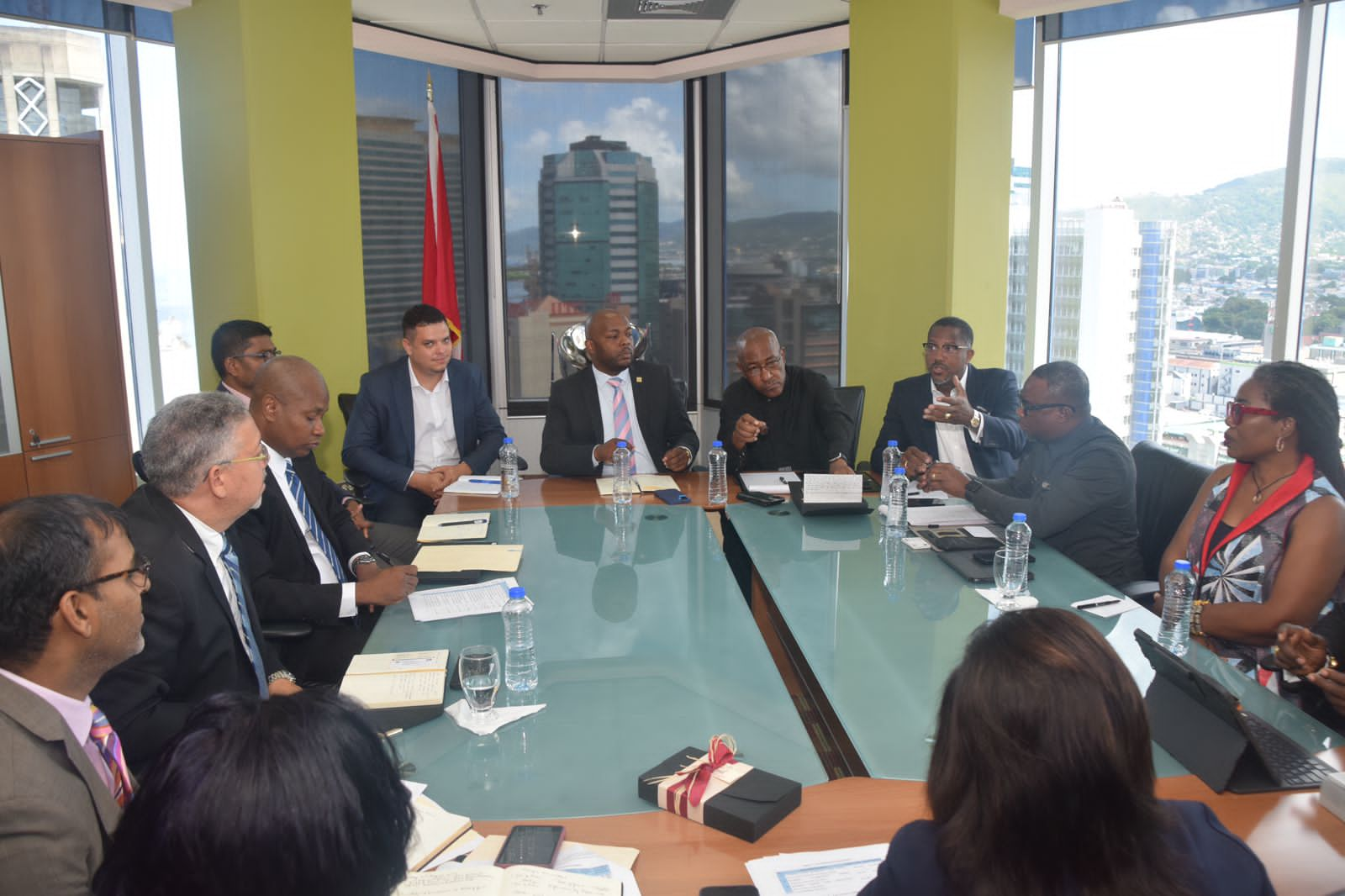 She reiterated T&T’s commitment to strengthening economic ties with Ghana, and by extension Africa. At the meeting, the CEO of GEPA, Dr Afua Asabea Asare discussed plans to export Ghana’s native fabrics and prints into the Caribbean, where there is considerable demand.
She reiterated T&T’s commitment to strengthening economic ties with Ghana, and by extension Africa. At the meeting, the CEO of GEPA, Dr Afua Asabea Asare discussed plans to export Ghana’s native fabrics and prints into the Caribbean, where there is considerable demand. Further, a commitment has been made by both parties to accelerate the ongoing negotiations for a Reciprocal Protection and Promotion of Investments Agreement (RIPPA), with the aim of reaching an agreement by the end of 2023.
Further, a commitment has been made by both parties to accelerate the ongoing negotiations for a Reciprocal Protection and Promotion of Investments Agreement (RIPPA), with the aim of reaching an agreement by the end of 2023.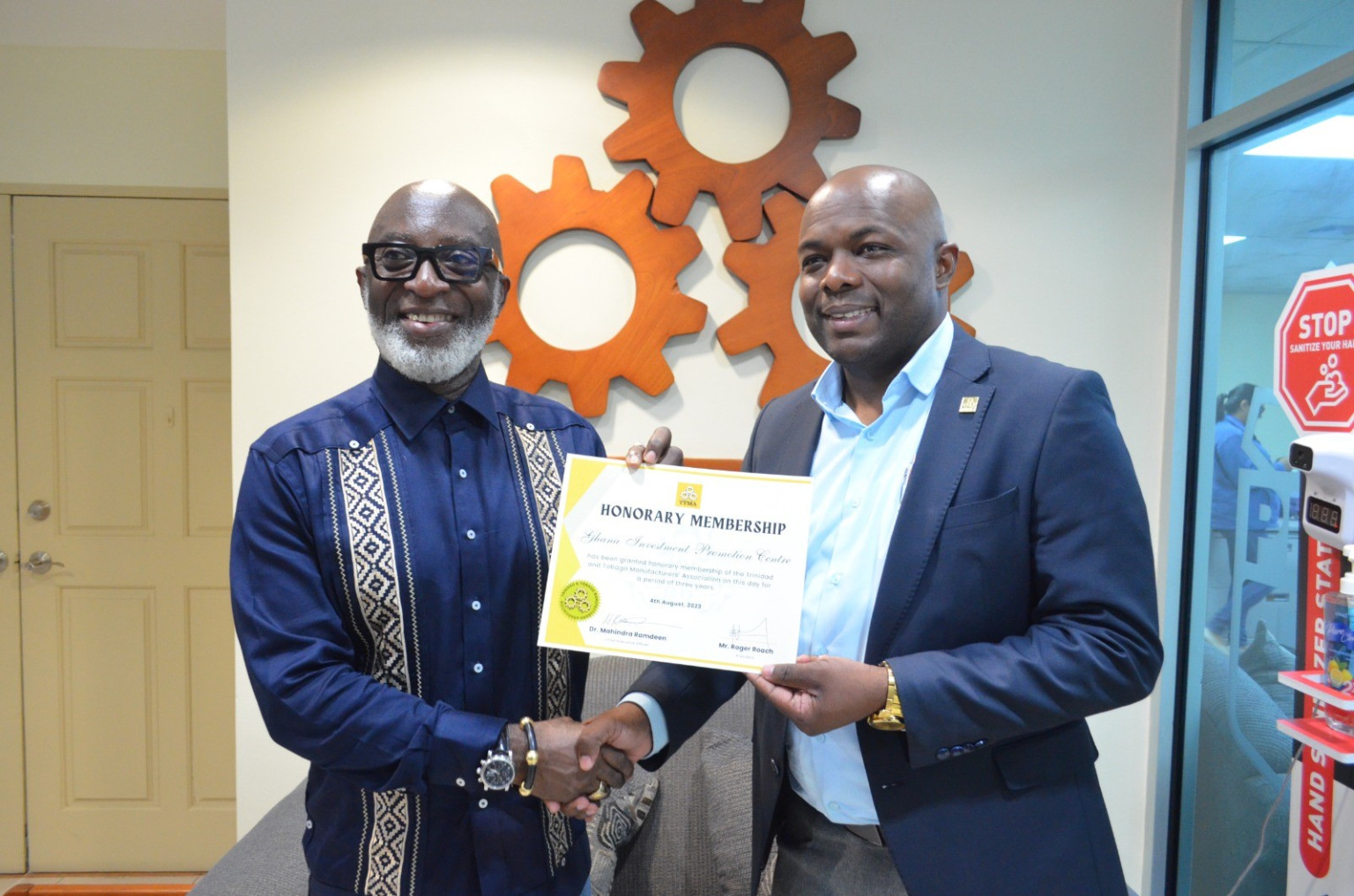
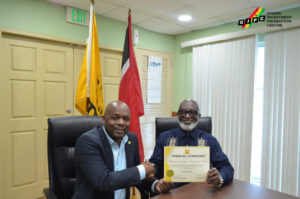 Grant reiterated the growing trend of mixology in Ghana and the potential of Angostura’s products and reiterated the need to settle on distinct marketing strategies for alcoholic and non-alcoholic beverages in the Ghanaian market. The role of the African Continental Free Trade Area (AfCFTA) in shaping trade dynamics between the Caribbean and Africa was discussed. Angostura expressed interest in obtaining a market entry roadmap from GIPC and exploring partnerships with Ghanaian distributors.
Grant reiterated the growing trend of mixology in Ghana and the potential of Angostura’s products and reiterated the need to settle on distinct marketing strategies for alcoholic and non-alcoholic beverages in the Ghanaian market. The role of the African Continental Free Trade Area (AfCFTA) in shaping trade dynamics between the Caribbean and Africa was discussed. Angostura expressed interest in obtaining a market entry roadmap from GIPC and exploring partnerships with Ghanaian distributors.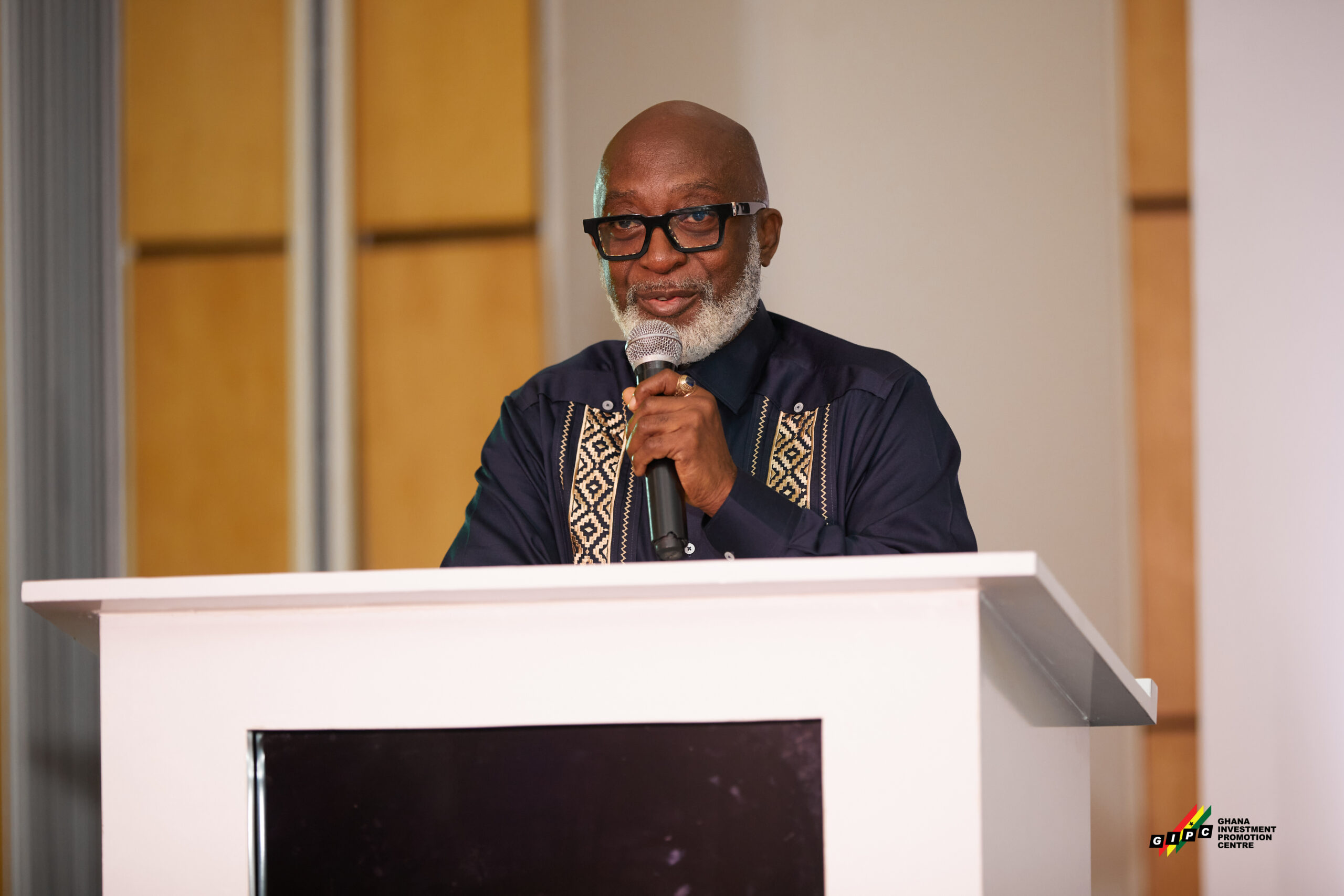
 “We are more alike in many more ways than we are different. I believe that you all do have a natural affinity to the African continent, both culturally, both behaviorally, look at the food, we eat almost the same things. Look at the music. The beats or common beats are the same, you know. So culturally, we are very much in sync and in tune that you tell us that when there are opportunities, it is just as good for you to have those same opportunities as anybody else and if not more.”
“We are more alike in many more ways than we are different. I believe that you all do have a natural affinity to the African continent, both culturally, both behaviorally, look at the food, we eat almost the same things. Look at the music. The beats or common beats are the same, you know. So culturally, we are very much in sync and in tune that you tell us that when there are opportunities, it is just as good for you to have those same opportunities as anybody else and if not more.” Le Hunte said Republic Bank’s venture into the Ghanaian market was the largest investment into the country of any entity from the diaspora. He said after the bank visited the country in 2010 and did its research, within two years the bank was up and running. That two-year period, he said, was testament to the ease at which business can be done in the country, all that is needed is for entrepreneurial exploration.
Le Hunte said Republic Bank’s venture into the Ghanaian market was the largest investment into the country of any entity from the diaspora. He said after the bank visited the country in 2010 and did its research, within two years the bank was up and running. That two-year period, he said, was testament to the ease at which business can be done in the country, all that is needed is for entrepreneurial exploration.